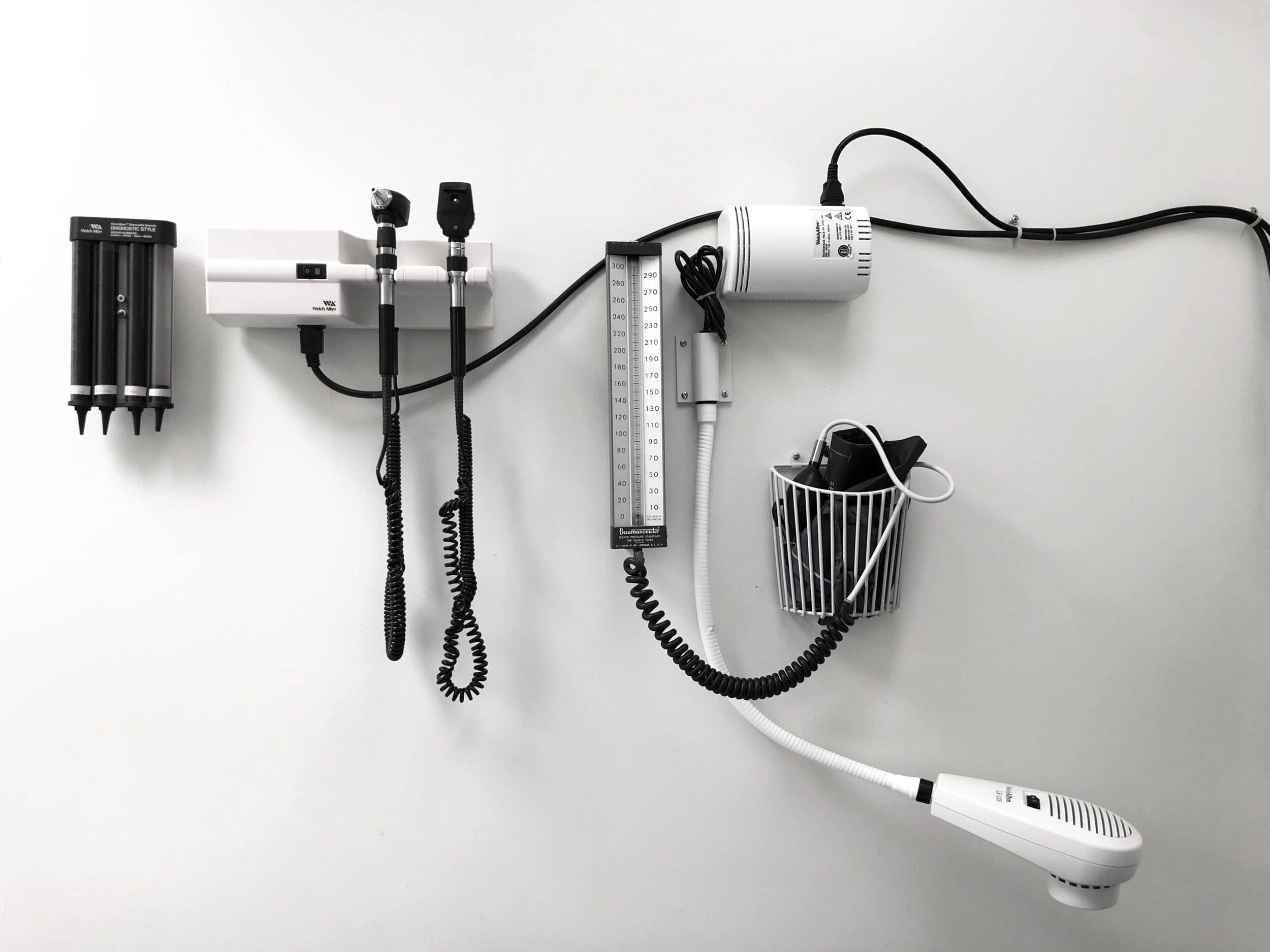Updated August 27, 2021
what questions should I and my family be asking?
Do I have a family doctor? If not, where and how can I get one?
Do I have long-term (chronic) illnesses that should be managed?
Do I have all my medications, health records, and emergency contacts prepared before going to my clinic visit?
Do I know why I am going to this clinic visit?
Did I ask all the questions I wanted to ask the healthcare team?
Was everything clear to me when I visited the clinic? Do I know what the management plan is?
Do I need to be referred to a specialist or another clinic?
When is my next follow-up appointment with this clinic?
What actions can I take for this agenda?
It is highly recommended that you have a family doctor that can review your health issues and visit in case you have any health problems. If you do not have a family doctor, try to find one in your area
Make notes and reminders on your clinic visits to not miss appointments
Review your medications and know why and how you’re taking them. Bring your medications with you to the clinic. Let them know about any supplements or over the counter medication you’re taking too
Review your long-term (chronic) health issues. This is called your “past medical history.” For example, you can make a list of your health issues such as diabetes, high blood pressure, or surgeries you had
Bring your health aids such as glasses, hearing aids, and walking aids
Ask your doctor what options you have for addressing your health issues and when you will follow up with them
Keep track of your timeline of health issues. For example, write down the timing of your symptoms, hospital admissions, and previous clinic visits
You can also write down briefly what the diagnosis and management plan was for them. This will really help your doctor know the course of your health issues
Even though they could have access to this information, it is good to do this as it helps them know what you understand about your health to fill in the gaps
It is ok to share how you feel about your symptom or illness. Your doctor can explore those feelings with you to help
Ask questions and don’t be embarrassed. Remember that it is ok to ask them to repeat or explain things in a different way
Go to the emergency department in your area or hospital if you feel you have a medical emergency
What is a clinic visit?
A clinic visit is a visit to a doctor’s office to check up on your health
It is done in an outpatient setting
This means you’re not admitted to the hospital as an inpatient
A clinic visit is usually not for emergencies but could be very important and for urgent reasons
This agenda focuses on general clinic visit expectations and recommendations
These vary depending on where you are and your health needs
Always speak to your doctor or clinic for details about your health
Always go to the emergency department or hospital in your area if you feel you have a medical emergency
Who do I see when I go to a clinic?
Any physician in any field can have a clinic
A common specialty you will likely visit is family medicine
Family medicine is a field your family doctor specializes in
A family doctor can also be referred to as a general practitioner (GP)
Your family doctor is a great resource as they get to know you over a long period of time
As such, a good and trusted relationship is built as this will improve overall health decisions
You could see specialists in other fields too depending on your needs
A clinic visit is to see a doctor about your health issues as an outpatient
Your family doctor is a great resource to look into your overall health and refer you to other specialty clinics
Who arranges my clinic visits?
A common way to be referred to a clinic is after seeing your family doctor
They usually know your healthcare system and your health needs well
This means they can refer you to the appropriate specialist you need to be seen by
Sometimes, if you were a patient in a hospital and discharged, they can arrange clinic visits depending on your health needs
Some clinics see patients directly if they called or inquired about a visit or appointment
Different clinics in different areas and specialties vary so check first
Why do I need a clinic visit?
Clinic visits keep track of your overall health
They can screen for diseases, try to prevent them, treat active issues, and follow up on your health problems
They are great resources to keep you from needing to go to the hospital
They try to manage your health in the community rather than being admitted to the hospital or need to go to the emergency department
This is also to keep your health as best as can be with the best quality of life you can achieve
Clinic visits aim to improve your overall health and quality of life
They also aim to decrease the risk of needing to go to the hospital
What should I expect at a clinic visit?
Different clinics have different expectations and processes
Usually, a clinic visit to your family doctor has you come in 10 to 15 minutes before your appointment
This is to make sure all your paperwork and management issues are completed
After that, your vitals such as blood pressure, heart rate, and temperature could be taken
Sometimes, a nurse might ask you a few questions before seeing the doctor
Before you’re seen, the doctor usually checks on previous health records or bloodwork you had done before. This is to know your medical history
When you do see the doctor, they will spend time gathering information from you. After that, they may do a physical exam
They can tell you what they think your health issue is and recommend management
Tests can be recommended such as bloodwork or imaging to get more information about your health
Lastly, they can recommend treatment either through lifestyle changes, medications, or procedures
They can also refer you to other specialists and arrange when to see them again in follow up
All of these descriptions depend on your health issue, needs, family doctor, resources, and preference
What should I expect seeing a geriatrician in a geriatric or senior health clinic?
A geriatric clinic is similar to other clinic visits with some differences
They usually see patients aged 65 and older
A geriatric clinic takes detailed information from you to better help
They do a thorough assessment on your overall health issues
They also see you for specific complex referrals outlined below
This is because they specialize in older adult medical issues that are usually complex
It could take up to two hours to finish your assessment
They usually ask you to bring a family or friend that knows you well
This is because geriatric clinics gather information from them about your health too
Doing so is only with your consent and permission
The doctor at your clinic may assess you with questions, physical exam, and blood tests
They will inform you what they think is your health issue and recommend treatment options
Why or when should I be referred to a geriatric or senior health clinic?
Your family doctor is a common physician that could refer you
You could also be referred from the hospital after discharge
There are many reasons to be referred to a geriatric clinic as follows:
Assessment of thinking (cognition) to note any dementia concern
Assessment of complex and many health issues as one gets older
Assessment of common older adult issues such as weight loss, constipation, sleep problems, and many others
Assessment of complex and many medications
Assessment of falls and injuries from falls to reduce the risk of falling
Assessment of older adult mental health issues
Assessment of social issues and end of life goals
What is recommended to bring with me to a clinic?
Always bring the medications you’re taking to your visit. This is so that your doctor can see exactly what you’re taking
Even though they might have a record of what medications you have, it is important to know exactly what you’re actually taking
Let them know about any supplements or over the counter medication you’re taking too
Bring a family member or friend you trust. You can mention to the clinic whether or not you want your health information to be shared with them
They can provide valuable information about your health only if you are agreeable
If it is a new visit, it’s a good idea to bring any health records, letters, or medical summaries about your health overall. This can help them learn about your health and what has been done to speed things along
Bring any equipment or aids that will help you. If you have eyeglasses, hearing aids, walking aids, or other tools take them with you
Bring a list of questions that come to mind before going to the clinic
You can ask questions as you’re there during your assessment, but it is good to have them written down so that you do not forget to ask important points
Bring a warm sweater in case the clinic is cold
A geriatric clinic specializes in older adult medicine
They assess older adults with many complex medical issues
when going to your visit, bring your medications, health records, family or friend support, and health aids
What questions should I ask at a clinic visit?
Whatever it is you feel is unclear or you’re uncertain of you should ask
Ask why you’re visiting the clinic if that has not been made clear
Ask to be clear about what health issues they’re addressing and what treatment options you have
Be honest and do not be shy when it comes to your health so your doctor can have as much information about you
It is ok to ask the doctor to repeat what they said or in a simpler way
You can ask for your health records or blood work for your reference
You can ask how to get in touch and contact the clinic and when you should follow up with them again
What rights do I have as a patient at a clinic?
You have the right to ask for a translator if you speak a different language
You have the right to know your options for treatment. Sometimes your doctor can offer more than one way to address your health issue. They provide you with the benefits and risks of each option so you’re informed when making decisions
You have the right to ask for a second opinion. This means you can ask to see another doctor to see if they have a similar assessment for your health
You have the right to refuse treatment if you understand the benefits and risks and have the capacity to do so
You have the right to not share your health information even with a family member or friend
Even though it is recommended you bring them with you, it is your choice whether or not they know or give health information
Keep in mind they can be a valuable asset to help your doctor know more about your health that you may not have recognized
ask questions to make it clear to you what your health issues are
it is ok to ask the doctor to repeat their explanations about your health. be honest and don’t be shy
if needed, it is your right to ask for a translator, second opinion, and keep your health information private
What do I do after a clinic visit?
Follow up with the management plan you discussed with your doctor to keep your health as best as can be
Stay in touch with your doctor and clinic for future appointments
If you have issues with the management plan, it is best you call the clinic
Examples of concerns you might have after a clinic visit would be:
Not being able to commit to the management plan you discussed with your doctor. This is so they can provide other ways or options
Have questions about your medications or side effects from them
Unexpected health changes
What to do in case of an emergency for your specific health issue
Overall questions about your health that you're unclear about
stay in touch with your clinic and know how to contact them
review when you need to see them again and contact them for questions and concerns
What resources can help with this agenda?
webmd.com
WebMD has content from physicians with expertise in journalism and content creation for clinic visits
nia.nih.gov
The NIA leads a broad scientific effort to understand the nature of aging and to extend the healthy, active years of life. They conduct research on aging and provide resources as well
References
Robert L Kane et al. Essentials of Clinical Geriatrics 8th edition (2018) Jeffrey B. Halter et al.
Hazzard's Geriatric Medicine and Gerontology 7th edition (2016)
Jayna Holroyd-Leduc et al. Evidence Based Geriatric Medicine (2012)









